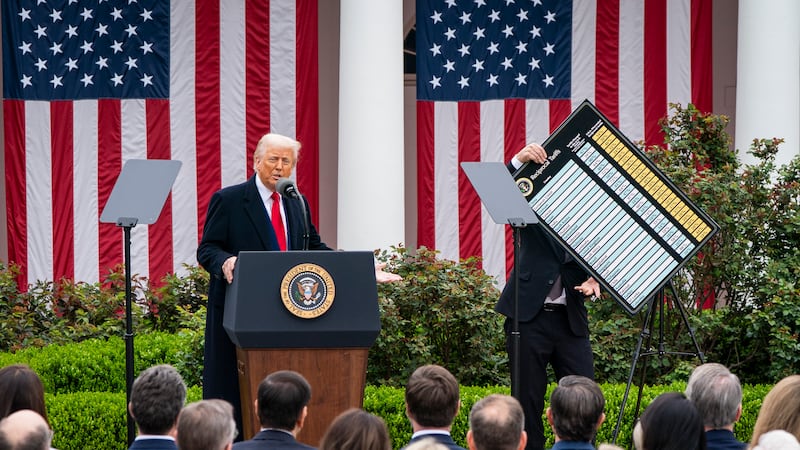PricewaterhouseCoopers (PwC) has lost a lucrative contract to audit the accounts of AIB following the fraud at its US subsidiary Allfirst, which cost €777 million after going undetected for five years.
The effective termination of the contract came despite AIB's insistence that it had the "highest regard" for the company. While ending the audit relationship, AIB will continue to use PwC for non-audit consultancy work - worth €5.8 million in 2000 - in the IT and taxation areas.
The bank said PwC had not been invited to submit a tender for the audit contract, which is believed to have been worth about €2.5 million last year. The move was "appropriate" given other changes in the bank's control processes, its spokeswoman said.
The contract was due to be renewed at the bank's a.g.m. next month. PwC will not receive a severance payment.
The control system changes at AIB follow a damning report by a former controller of the US currency, Mr Eugene Ludwig, which attributed its failure to detect the fraud to a combination of bullying, laziness and weak management systems.
Asked whether the decision amounted to dismissing the auditor, the spokeswoman said: "No, because we're going to maintain the relationship with PwC for other services. We wouldn't consider it to be akin to sacking them." The spokeswoman claimed it was "not the case" that AIB was dissatisfied with PwC. Indeed, AIB's finance and risk director, Mr Gary Kennedy, thanked PwC and expressed appreciation for the work it had carried out for the bank. He added: "We have the highest regard for PwC as a firm and look forward to using a range of their services in the future."
With the image of the Arthur Andersen audit company tarnished due to the Enron scandal in the US, it is thought that the favourites to secure the AIB contract are Ernst & Young, KPMG and Deloitte & Touche. Deloitte & Touche and its retired managing partner Mr Paul Carthy are challenging the findings of an Institute of Chartered Accountants in Ireland inquiry into possible professional misconduct uncovered in 1997 by the McCracken tribunal.
In comments that appeared to absolve PwC of responsibility for uncovering the Allfirst debacle, AIB's chairman, Mr Lochlainn Quinn, stated last month that it was "not the job of auditors to disclose fraud". Such comments suggest that AIB has no intention of pursuing PwC in relation to the fraud. One of the audit firm's predecessors, Coopers & Lybrand, was auditor to AIB when the fraud began in 1997. PwC was formed when Coopers & Lybrand merged with Price Waterhouse.
The firm is also auditor to Bank of Ireland. Its spokeswoman said the auditor maintained "Chinese walls" to secure the independence of the work carried out for the competing banks.
Mr Ludwig did not interview the external auditor and his report made no reference to PwC or its performance. It did, however, call for a comprehensive review of all risk management and audit functions.
Mr Ludwig added that the bank should ensure that "all individuals in senior risk management, control and audit functions" were sufficiently skilled and sufficiently rigorous in the exercise of their responsibilities.
The audit firm made no statement. Its spokesman said: "PwC traditionally doesn't comment on client issues; it never has and won't do in this case."
It is thought that 70 per cent of the €2.5 million audit fee in 2000 was paid to PwC affiliates outside the State in respect of work carried out at AIB's foreign subsidiaries, among them Allfirst.















